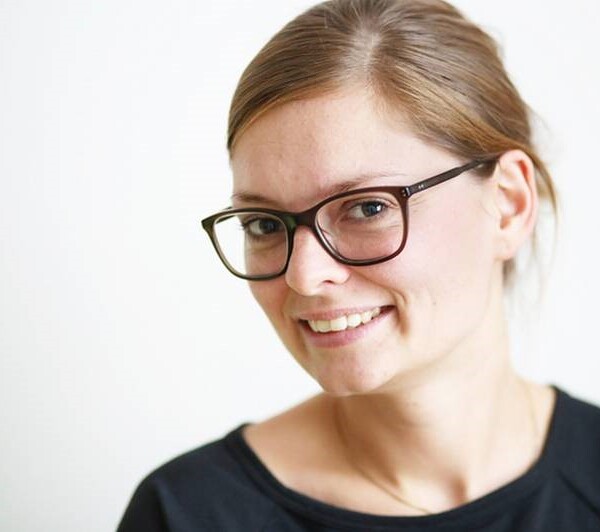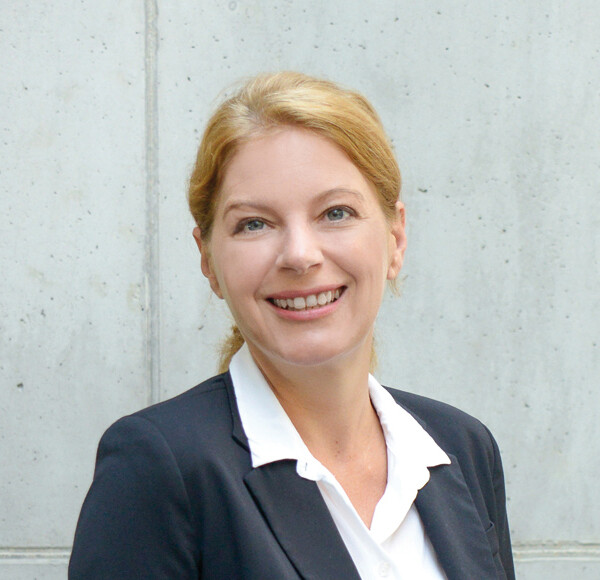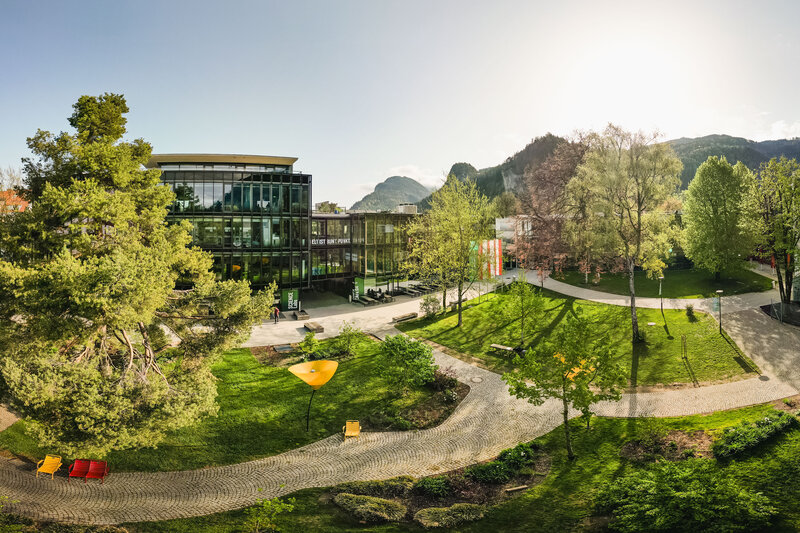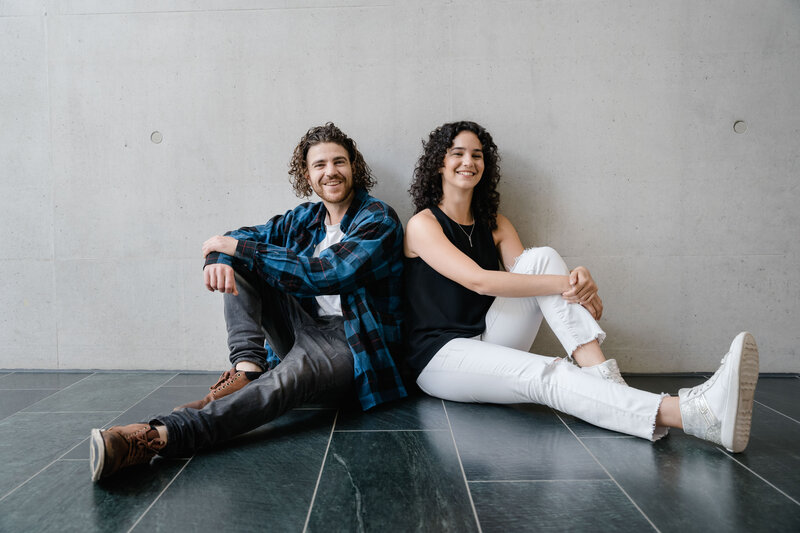Are you considering a career in international sports, culture and event management? Our part-time, English-language master's program offers you the perfect combination of theory and practice, enabling you to think and act analytically, innovatively and creatively. Take the next step!

Sports, Culture & Event Management
Master's degree program
Overview
-
Qualification Level:
Stufe 2, Master -
Price:
Euro 363,36* (excl. Student Union-fees) each semester -
Academic Degree:
Master of Arts in Business (MA) -
Academic Program:
Part-time -
Language:
58% German, 42% English -
Remote Options:
E-Learning max. 50 % online -
Exchange Semester:
Supervised study trip in the 2nd semester** -
Admission Requirements:
General admission requirements -
Study Places per Year:
32
Program Description
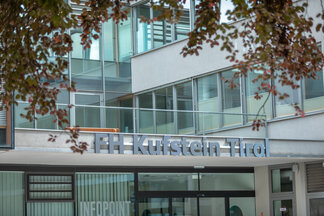


Immerse yourself in our master's degree program in Sports, Culture & Event Management, which offers excellent career prospects. This strategic management training is tailored to these exciting fields and equips you with essential leadership skills. More than 40% of the courses are taught in English to optimally prepare you for international challenges.
The master's in Sports, Culture & Event Management is designed for creative and dedicated individuals who want to enter the dynamic world of sport, culture or events. Students will receive a solid theoretical and practical education, as well as strategic management skills. The curriculum incorporates new developments such as digitalization, sustainability and AI, and provides a comprehensive education in leadership and social skills. By working closely with companies and organisations, students are able to network with industry while they are still studying.
Study Focus
-
13 %
Basics Sports, Culture & Event Management
-
17 %
Specific expertise in sports, culture & event management
-
17 %
In-depth electives & scope for specialization
-
17 %
Leadership & Social Skills
-
36 %
Practical knowledge transfer & Master's thesis
What You Will Learn
-
Sports management and sports science
-
Cultural management and cultural studies
-
Event management and event sciences
-
Strategic management
-
Economic and socio-political contexts of the industries
-
Social and leadership skills
-
Practical experience
-
Scientific methods
Popular Occupational Fields
- Sports management: sports marketing & sports communication agencies, sports federations, organizing committees of major sports events, sporting goods industry & trade
- Cultural management: cultural institutions such as museums, opera houses, theatres, concert halls; festivals, film & music industry and companies in the creative industries
- Event management: event agencies, conference & congress centers, trade fair & congress agencies, corporate marketing departments
Career Opportunities
-
Over 2 million employees
in the event industry in Austria and Germany
-
Over EUR 4bn market volume
for sports and music events in Austria and Germany
-
+ 11.1% growth rate
of events worldwide
-
EUR 45,000 average salary
for employees in sports, culture and event management in Austria and Germany
The path to the Master's degree
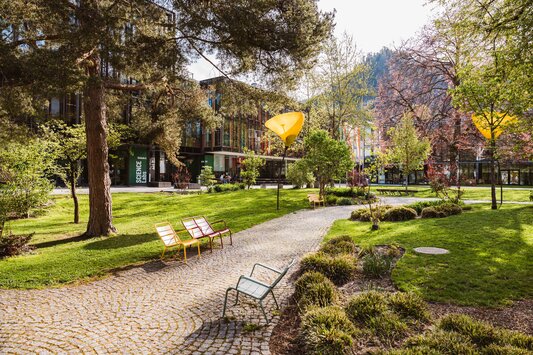
In the first semesters, students gain a basic understanding of business and sports, culture and event management. Subsequent courses explore integrative and advanced aspects of these fields. The program also emphasizes leadership and communication skills, including knowledge of social media and AI.
Students engage in hands-on projects with partners, gaining practical experience in the fields of sports, culture, and events.
Special features:
-
Company and industry networking
-
Practical lessons
-
Study Trip
Recognition of Prior Learning
Students have the option to receive credit for skills and competencies they have already acquired before the start of each semester.
To apply for credit, they must submit a request directly to the Director of Studies.
Director of Studies
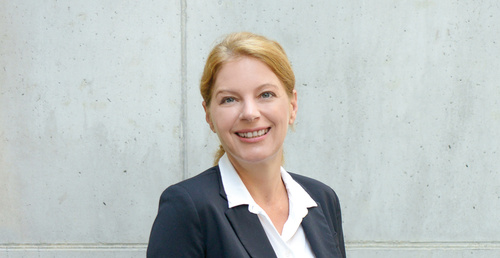
Asc. Prof. (FH) Mag. Monika Kohlhofer
Director of Studies Sports, Culture & Event Management
Curriculum
Basics Sports, Culture & Event Management
Sports Sciences & Sports Management
- Semester 1
- 4 ECTS
- Introduction to sport sciences - Basic theories and concepts of sports management - Distinctive features of management in mass and competitive sports and their interrelations - Different governance structures and organizational cultures in sports and their relationships - Basic developmental dynamics in sports (modernization, individualization, pluralization, commercialization, professionalization, growth of technology, mediatization, globalization) - Planning and control strategies for dealing with developmental dynamics in sports
DetailsCultural Sciences & Cultural Management
- Semester 1
- 4 ECTS
- Basic concepts and structures of cultural organizations - Cultural sociology, cultural education and brokerage - Interface management - Internationalization
DetailsBudgeting & Controlling
- Semester 1
- 4 ECTS
The course will build on the approaches to value-based controlling, utilizing: - Zero based budgeting - Performance measurement - Calculation of contribution margin The course will introduce: - The basics of budget planning - Classification in the planning process - Asses ment of company and project success - Actual vs. Target comparisons - Key performance indicators
DetailsEvent Sciences & Event Management
- Semester 1
- 4 ECTS
- Event typologies and classifications, event planning models and planning stages - Social science approaches in event management - Internal and external influencing factors in event management - Stakeholders in event management - Risk management - Event logistics and operations - Event evaluation
DetailsSpecialization Sports, Culture & Event Management
Event Design & Experience
- Semester 1
- 3 ECTS
- What is dramaturgy? (the internal constructive format – with a focus on storytelling; storytelling from the perspective of neuroscience; the external constructive format; dramatic constructive format with a focus on the dramatic arc) - Staging (transmedia storytelling; creative techniques for staging events; practical development of staging based on group exercises; staging options available for event managers) - Scripting - New forms of event staging – Events 2.0 (the emergence of new event forms; social media marketing as an event tool) - More interactive Event 2.0 tools
DetailsSports & Cultural Politics
- Semester 1
- 3 ECTS
- Legal and institutional framework of sports and cultural policy and politics - Key players and decision-making processes and responsibilities - European and international structures and organizations involved on sports and cultural politics - Current developments and critical discourse in sports and cultural politics
DetailsSCEM in the Urban Context (E)
- Semester 1
- 3 ECTS
- The impact of urban events on city image - The concept of eventification and eventilization and their effect on urban spaces and urban development - The role of urban events, culture and sport for city marketing, urban branding and place identity - The influence of sport on the transformation of urban spaces and community revitalization - Cultural policy programs (e.g. European Capital of Culture) and associated challenges and opportunities - Bidding, selection and evaluation process of cultural policy programs
DetailsCritical Thinking in SCEM
- Semester 2
- 3 ECTS
- Human rights as managerial matrix (e.g. accessibility, participation and equality of all nations) - Dimensions of diversity (incl. gender), representation and audience development in management strategies - Changes in communication and information technology, world of work and markets as well as in power relations between key stakeholders, and their impact on sport, culture and events
DetailsPublic Relations in SCEM
- Semester 3
- 5 ECTS
- Presentation of basic texts on dealing with media - Iconography and oral traditions - Historical understanding of writing - Writing of press releases, announcement texts (flyers, posters, brochures etc.) - Free speaking (radio, television, company videos etc.), lecture speaking, welcome speech, presentation - Innovative distribution of ideas as acquisition of competence in scientific education
DetailsSustainability (E)
- Semester 3
- 4 ECTS
- Concepts of sustainability from the perspectives of different stakeholders in context of sport- and cultural events (nations, communities, authorities, federations, environment, population, employer and employee, etc.) - Impacts of events on participants, regions, politics, etc. - Current political debates in relation to global warming - Tool used in Total quality management, process- and project management to support sustainability efforts
DetailsOptional Modules Sports, Culture & Event Management
Contemporary Issues in Global Sports (E) (WP)
- Semester 2
- 5 ECTS
- Essential concepts and elements of “glocal” sports: Global economics of sport, commercialization and strategic management - Major theories and different structures of governance in sports, integrity and corruption and their managerial implications
DetailsFestival Management (E) (WP)
- Semester 2
- 5 ECTS
- Definition and development of festivals - Tasks & potentials of art festivals - Global networks and international exchange - Festival tourism and sustainability - Festival management - Current issues
DetailsVenue Management (E) (WP)
- Semester 2
- 5 ECTS
- Introduction to event venue management - Overview of clusters of event venues - Features of selected clusters of event venues - The significance of architecture and the concept of space - Stakeholders of event venues - The question of construction costs - Interaction between construction and business - The lifecycle of event venues - Planning, financing and construction of event venues - Market and demand analysis as a basis - Site factors and site selection - Development of financial concepts, business plans - Strategic and operational management of event venues - Application of strategic management methods to event venues - Successful strategic positioning of event venues in the marketplace - Interaction of strategic management and operational management of event venues - Challenges in the operational management of event venues (including facility management) - Special features of conference and congress infrastructure - Special features of infrastructure in the leisure industry (e.g. garden shows, waterfront development)
DetailsProject Management (E) (WP)
- Semester 2
- 5 ECTS
- Understanding projects and structured project management - Project lifecycle (selection, initiation, planning, execution, monitoring & controlling, closing) - Project scheduling (scheduling software, manual scheduling techniques) - Project management methodologies
DetailsContemporary Issues in Sports Communication (E) (WP)
- Semester 3
- 5 ECTS
- Major communication theories and conceptual aspects in sports management studies - Sport as a communication system and sports media organizations - Athlete – media communication, sport fandom and fan culture in the digital world - Major challenges in sports communication, future media formats and trends
DetailsTechnologies of Visitor Experience (E) (WP)
- Semester 3
- 5 ECTS
- Typology of computer-mediated visitor experiences in real environments (audio guide, multimedia guide, augmented reality, mixed reality) - Basics of multisensory perception and multimedia comprehension - Visitor routes and spatial experience - Atmosphere and immersion - Enhanced storytelling and learning - Digital engagement through web 2.0 - Specifics of user experience of cultural visitor apps
DetailsManaging the Event Workforce (E) (WP)
- Semester 3
- 5 ECTS
- Introduction to human resource management in an event setting, e.g. the ‘pulsating organization’ - Recruitment, selection, training and development of the event workforce - Motivation and retention of the event volunteers - Aesthetic and emotional labor in the event industry - Moral, ethical and legal aspects of human resource management in an event setting incl. e.g. working conditions of the event workforce
DetailsCross-Cultural Management (E) (WP)
- Semester 3
- 5 ECTS
- Concept and application of culture in business - Determinants and dimensions of culture - Global business cultures - Culture and leadership - Corporate culture
DetailsManagement & Social Skills Sports, Culture & Event Management
Team Building
- Semester 1
- 3 ECTS
The course combines learning through outdoor and indoor components with keynote speeches and reflection: - The development of teams in their compositions - Target perspectives and risks - Leadership in a team - Organization of cooperation - Social coherence - The assessment of roles - Potential for conflict including causes and solutions
DetailsStrategic Human Resource Management (E)
- Semester 1
- 2 ECTS
The course covers various topics relevant to strategic HRM, for example such as ‚hard‘ and ‚soft‘ models of HRM, modern organizational structures and notion of culture, external influences on SHRM, flexible working, reward management, talent Management and/or equality and diversity in the workplace.
DetailsStudy Trip
- Semester 2
- 3 ECTS
- Planning, organization, and implementation of the program - Meetings and discussions with experts from sports, culture, and event management - Visits to foreign trade centers, embassies, and international institutions (e.g. Goethe Institute) - Participation in courses at partner universities developing teams in their compositions
DetailsDigital Marketing (E)
- Semester 2
- 3 ECTS
The course presents: - An overview of the digital marketing tools currently in use - The framework conditions when using digital marketing - The special challenges regarding interaction and fast pace in digital marketing Based on case studies, current best practice digital marketing campaigns are discussed and own marketing concepts are designed.
DetailsStrategic & Innovation Management (E)
- Semester 2
- 3 ECTS
- Fundamental concepts of strategy and strategic innovation (general strategy) - Key concepts of strategic positioning and general competitive strategy frameworks for industry analysis. (Michael Porter) - Innovation strategy for creating unique products, services, and market positions (Blue Ocean Strategy) - Tools for translating strategic vision into organizational action (The Balanced Scorecard, and others)
DetailsLeadership Skills (E)
- Semester 4
- 3 ECTS
- Essential concepts and elements of leadership in a modern business setting - Fundamental approaches to leadership (trait, skill, behavioral, and situational leadership) - Emerging approaches to leadership (Authentic Leadership, Servant Leadership) - Understanding and labeling one’s own views and outlooks on leadership - Developing and applying leadership skills - Most important characteristics and features of leadership in sports, cultural and event organizations - Different approaches and understandings of leadership
DetailsLaw
- Semester 4
- 3 ECTS
- Introduction to legal terminology - Event legislation incl. different types of events - Employment law - Copyright - Liability - Legal consequences - Building regulations - Authorities - Laws, regulations, legal obligations
DetailsPractical Transfer Sports, Culture & Event Management
Business Project I
- Semester 2
- 4 ECTS
- Joint kick-off to the course - Project client briefing - Project development and control - Intermediate presentations and final presentations - Coaching - Execution or completion - Support during the implementation - Post reporting and documentation - Project presentation
DetailsResearch Methods & Evidence-based Management
- Semester 2
- 4 ECTS
- Differences and interfaces between qualitative and quantitative social research - Research design and planning - Sampling in qualitative and quantitative research - Instruments for qualitative and quantitative data collection - Methods for data analysis: qualitative content analysis, factor analysis, regression analysis - Examples of empirical studies from sports, culture and event management
DetailsBusiness Project II
- Semester 3
- 4 ECTS
- Joint kick-off to the course - Project client briefing - Project development and control - Intermediate presentations and final presentations - Coaching - Execution or completion - Support during the implementation - Post reporting and documentation - Project presentation
DetailsThesis Preparation Seminar
- Semester 3
- 4 ECTS
- Structure, content and function of research proposals - Phrasing and contextualizing research questions - Interdisciplinarity as opportunity and challenge - Establishing the current state of knowledge and systematically evaluating the literature - Closing and contextualizing the research gap - Managing information and knowledge - Choosing and justifying appropriate research methods - Quality criteria of empirical research in social sciences - Research ethics and data protection - Academic writing
DetailsElective (E)
- Semester 3
- 3 ECTS
The course will focus on the following points: - Future of sport, culture and events in terms of importance - The use of marketing tools in projects - Scientific analysis of marketing campaigns in practice - Current trends in international business in both theory and practice - Economic, political and social impacts - Industry and R&D activities - Digital developments - Creation and evaluation of trends, fashions, booms
DetailsColloquium on Master Thesis
- Semester 4
- 2 ECTS
- Discussion of problems and their possible methodological solutions to support the development of the Master's thesis topics. - Discussion about literature and processes of writing as a form of research and knowledge acquisition.
DetailsMaster Thesis
- Semester 4
- 22 ECTS
The Master's thesis is a scientific, written piece of work which focuses on application in the real world and on problem solving. It has clear reference to the thematic areas and specializations of the course (sport, culture and event management, urban studies, destination management, venue management, leadership management). The subject of focus will be prepared on the basis of a scientific piece of work - this is done independently and without external help (with specified sources and tools). Through these methods it will be ensured that students will be capable of selecting a subject which is both scientific and application-oriented. During the Master Thesis Seminar the students will be supported and supervised in the preparation of their master's thesis. The selection of a topic, organization and time management should be independently carried out by the student - this is done mainly through the critical examination of possible research questions and hypotheses. The mentor tutor will guide the students in scientific methods and during the individual coaching time formal composition will be discussed along with the question of time management.
DetailsStudy regulations to download
-
Sports, Culture & Event Management
in effect since October 07, 2020, start of study program from academic 2021/22
- All study regulations
Frequently Asked Questions
Do I have to work while studying?
No, there is no obligation to work or to be active in the industry. The course offers you the opportunity for further development, even if you are working in another profession or are not currently working.
Unlike a dual study program, there is no binding contract with a company. Many students also use the course during parental leave or for professional reorientation.
When do the classes take place?
Classes are mainly held on Friday afternoons to Saturday evenings.
Do lessons take place online or in person?
About half of the courses take place online, the other half in person.
How are optional modules allocated?
You choose two of the four offered specialization subjects for two semesters. These courses are offered jointly to full-time and part-time Master's students.
What is a study trip?
The Study Trip is a 5-day trip of the degree program to a freely chosen destination. Students plan and organize the program themselves.

